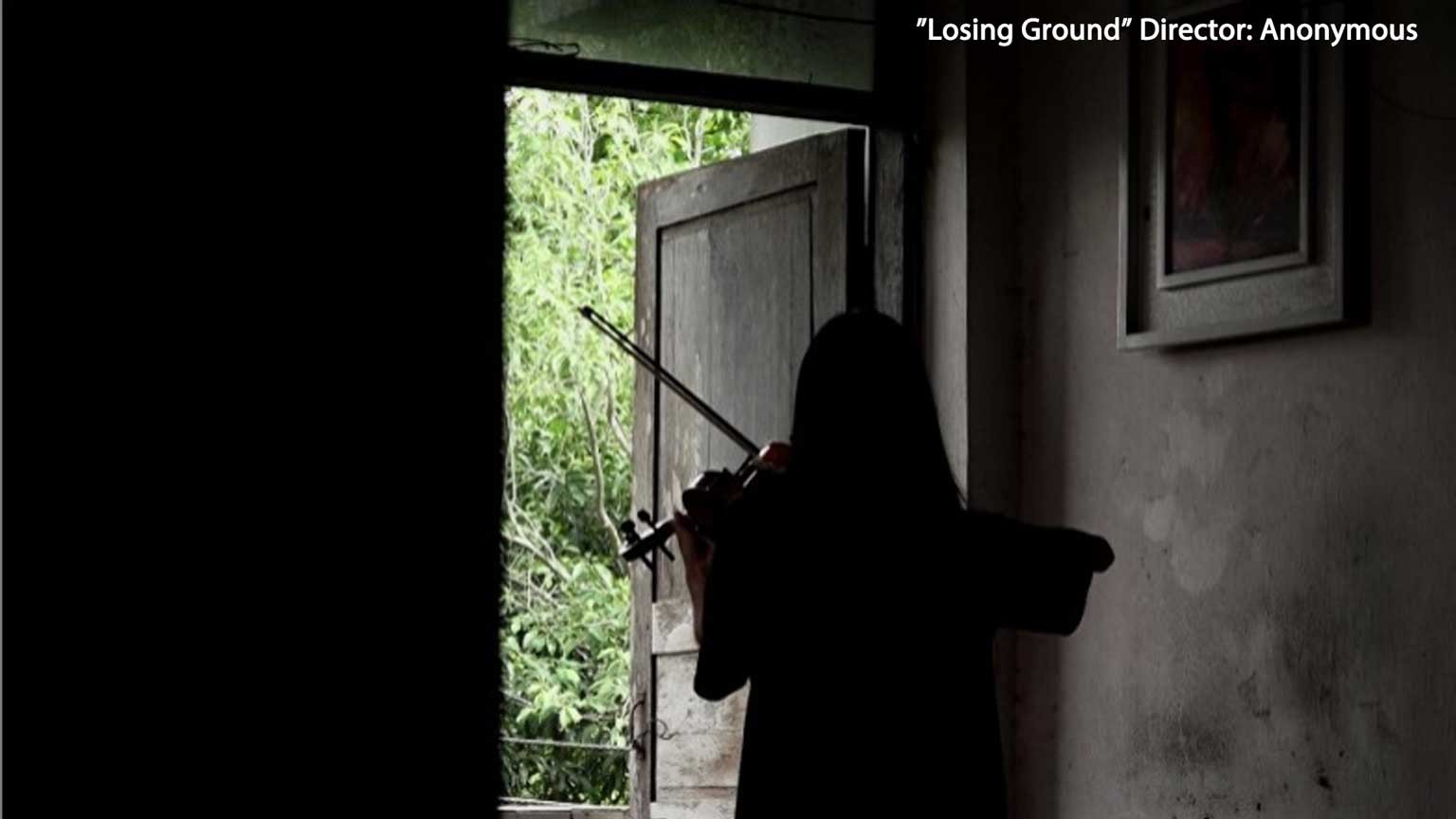Almost three years since a military coup crushed democratic rule in Myanmar — and amid ongoing bloodshed — "Losing Ground" taps into the injustice, anger and uncertainty that many young people are feeling.
There were 14 works from Myanmar submitted to the film festival which was held between October 5 and 12, three of which were selected as standouts for screening. Their common theme: struggle.
Resistance and resilience
Losing Ground", awarded the top prize in the New Asian Currents category, opens with the voice of the anonymous director, an ordinary person who grew up in Yangon but wound up spending eight months in prison because of his involvement in the resistance movement:
"Yangon…"
"Yangon is the place where we grew up."
"Our dreams and the times are becoming uncertain."
"On February 1st, all freedom disappeared."
I decided to make the film because after being released from prison, the world outside seemed just as confining as inside. Many young people are suffering from a sense of stagnation and anxiety," he says.
Enduring pain
The subjects of the film are shown gazing out of windows. A sense of powerlessness hangs in the air, as if they are locked up. "There's no one who has experienced what I went through. But everyone living under this regime shares a common sense of suffering," says the director. "We are all enduring this pain, and that's why I felt it was important to document it."
That process was in itself difficult: "People are questioned and sometimes even detained by the military for just having a camera."
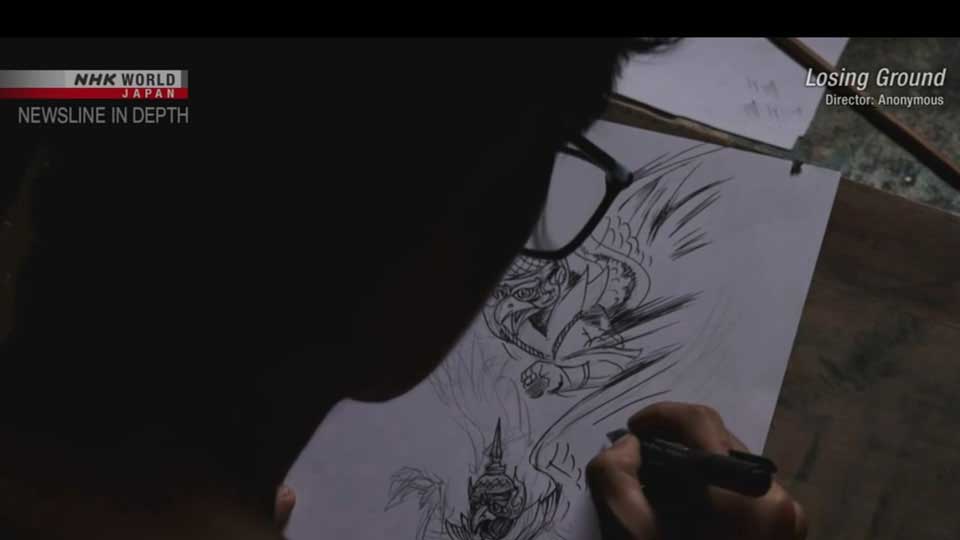
Even so, his film has found its way out of Myanmar to an international audience.
An anonymous award-winner
In addition to keeping his identity secret, the director was unable to attend the festival's award ceremony in person. Freedom of speech is no longer a part of life in Myanmar.
Jurors who awarded the prize said they admired the director's techniques. "We commend the unique way in which he depicted the situation with very quiet and esthetic images," says Lim Kah Wai, a Malaysian filmmaker.
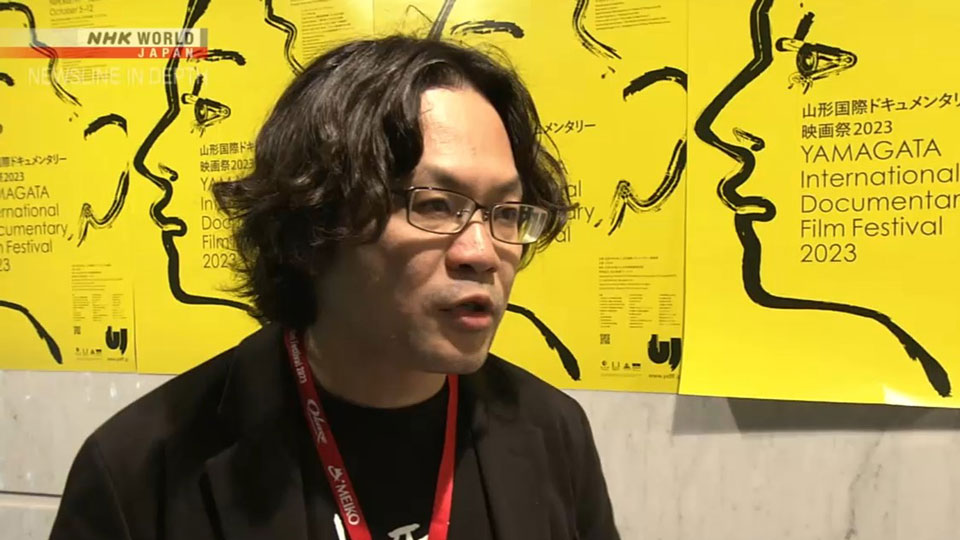
Tan Kai Syng, a Singaporean artist and academic, says the jury wanted to reward the director's courage. She hopes the film will ensure people in Myanmar "will be listened to and…hopefully catalyze governments, catalyze people in power, institutions in power, to really act to not forget what's happening in Myanmar.
"It's not a short fight. So there's a lot of work that we need to do and a film like this helps to remind us."
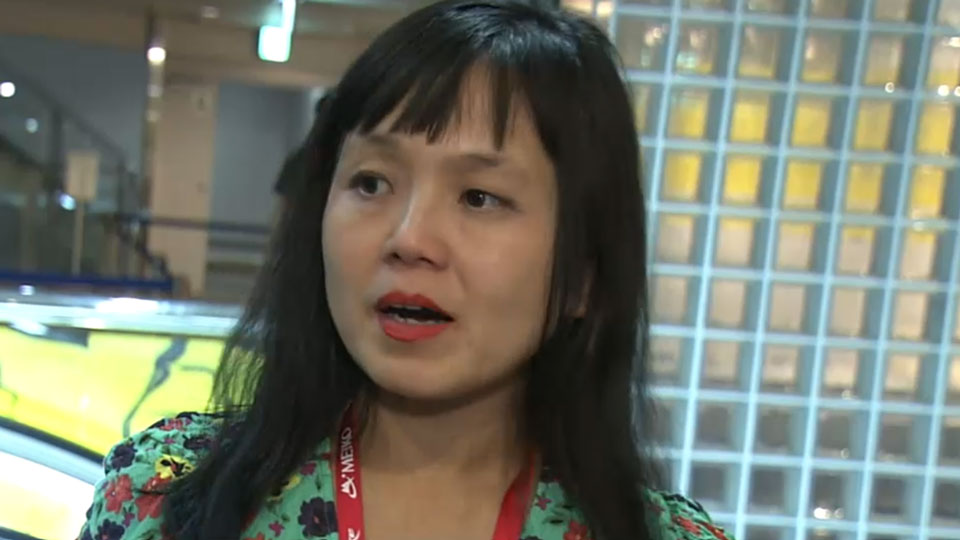
'Journey of A Bird'
Another anonymous work that screened at the festival, the 28-minute "Journey of a Bird," portrays the lives of young Burmese in the aftermath of the coup.
It documents the journey of a group of teenagers, video cameras in hand, fleeing the military's oppression, and the way they somehow retain the ability to laugh and joke along the way.

Footage of the 2021 crackdown is interwoven with the parallel storytelling capturing the teenagers' feelings about their homeland and freedom.
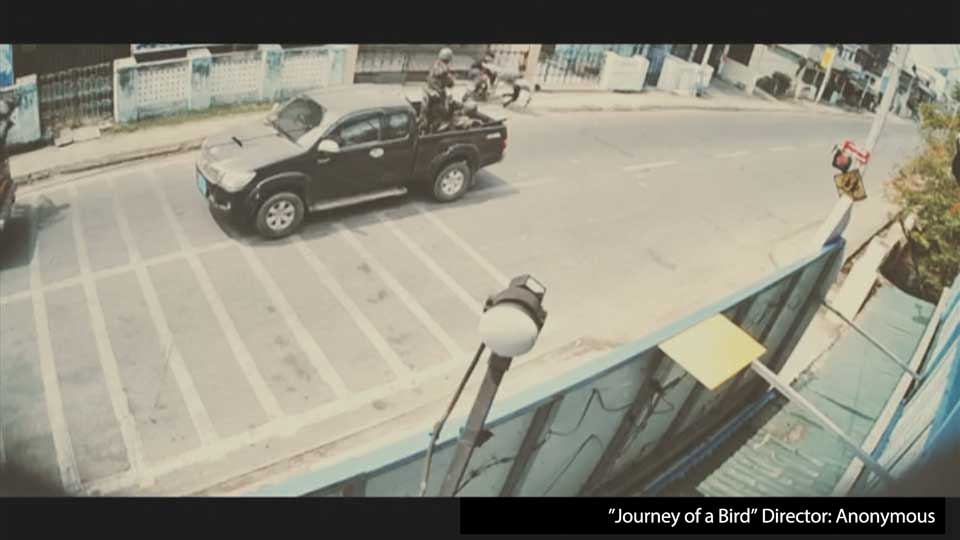
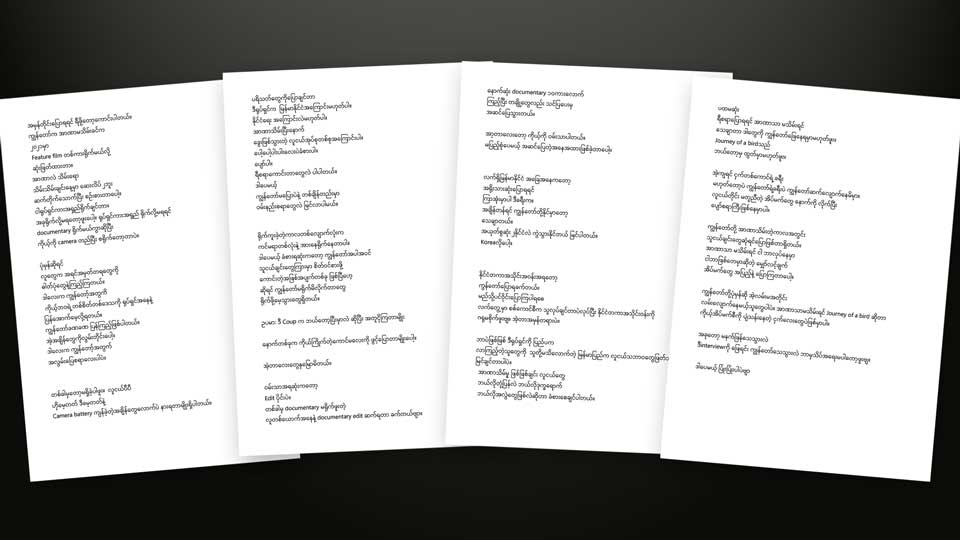
The director explains the work via text message: "The film is not about Myanmar as a nation, nor is it about politics. It focuses on a group of young individuals navigating the aftermath of a coup. We're not looking for viewers to take it too seriously. I want people to enjoy it as there are moments of humor as well. Of course, at the same time, there are moments of sorrow.
"Had the coup not occurred, just as the title Journey of a Bird suggests, these young people would have been 'birds' soaring toward their dreams. I hope people can feel how the youth responded to the coup, how they endured suffering, and how everything was brutally altered for them."
'Above and Below the Ground'
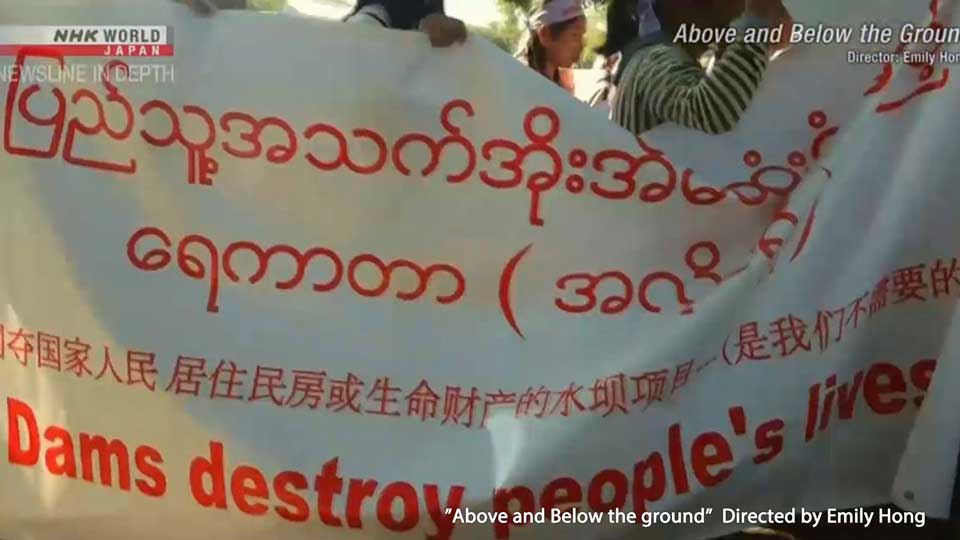
The filmmaker behind the third Myanmar piece that was screened, "Above and Below the Ground", is an Asian American anthropologist who started out documenting an environmental and cultural calamity in Myanmar's northernmost state of Kachin.
Over a span of five years — including before and after the coup — Emily Hong captured the beauty of the Irrawaddy River, which runs through the country from north to south, and a controversial dam project that involves the waterway.

Hong found that women activists were at the forefront of the Kachin struggle against the project.
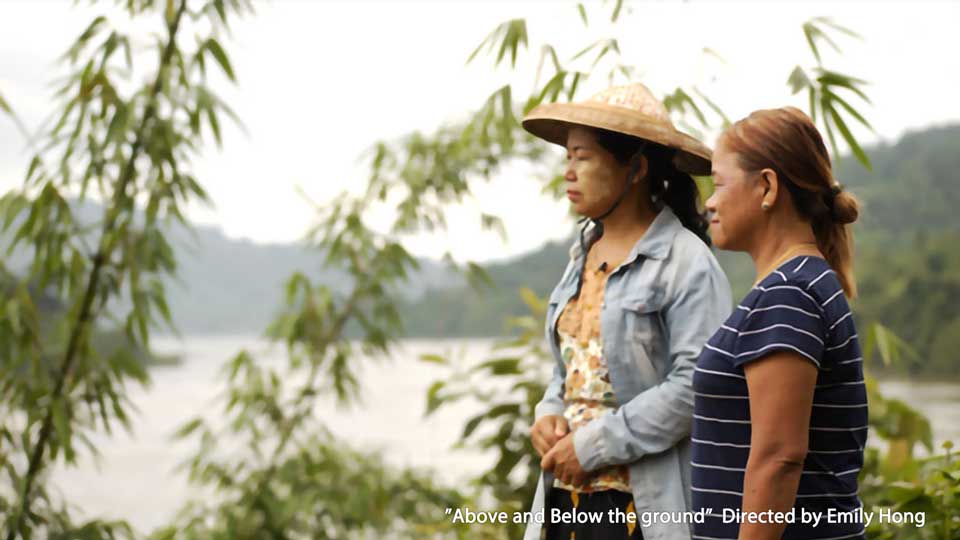
She shows how their message spreads from village to village and inspires others to join the cause. "Because we didn't understand the law, we lost our land and our rights were violated," one young activist explains on camera.
Above and Below the Ground" also features a Kachin rock band that performs protest songs, even though it can be dangerous to oppose the government-supported dam. Hong shows how music can unite.
Hong, who is based in the United States, tells the Kachin story with the cooperation of local producers. She sought to discover the origin of the grassroots movement against the dam.
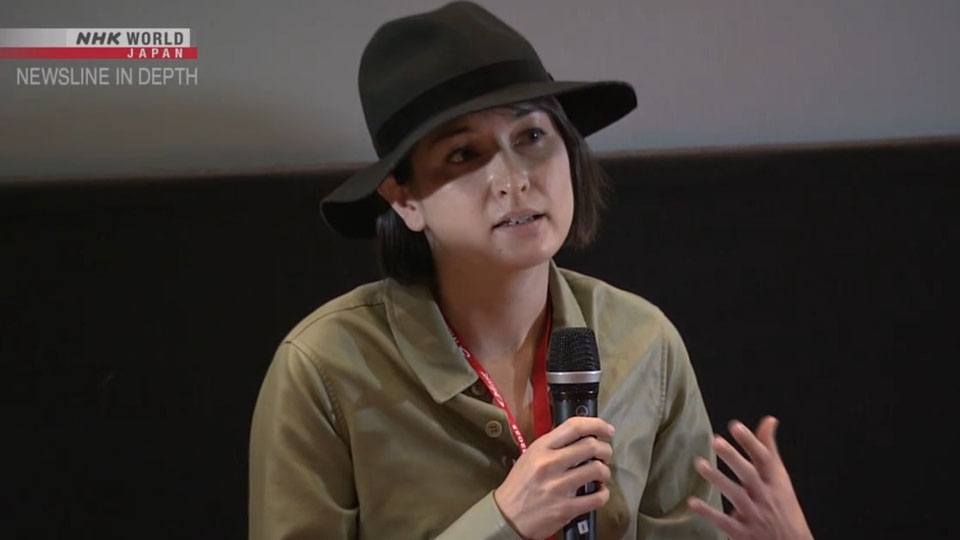
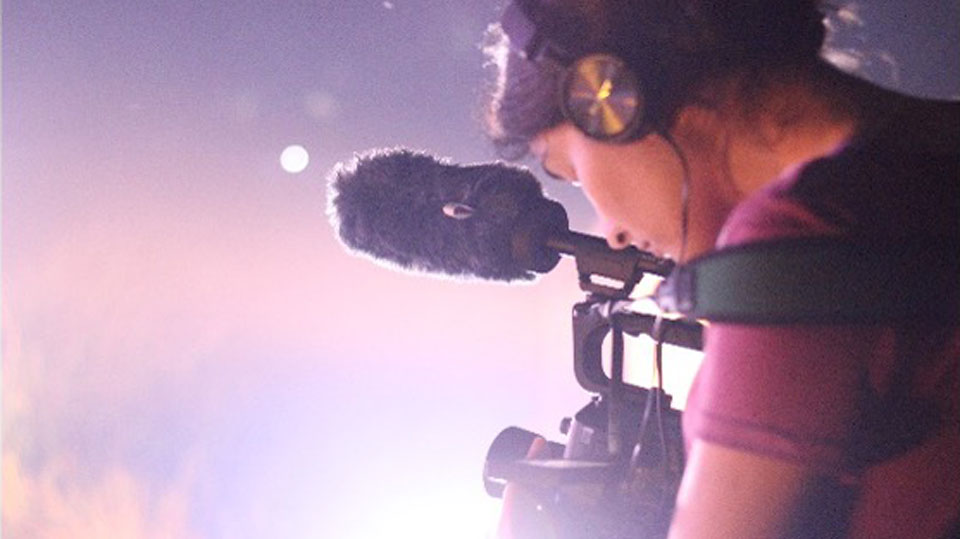
So much portrayal of indigenous people in Asia and around the world is that indigenous people are stuck in the past, or they're terrorists. This has been the discourse and the media imagery in Myanmar as well as around Asia. I wanted to show the reality."
During the filming, she noticed a shift in consciousness among the local young people as they inspired one another.
Then, suddenly, they faced another challenge: the military coup that saw everyone, not just the Kachin minority, being suppressed.
In spite of the danger, Hong decided to continue with the project even as the situation worsened. And she found something unexpected: "Finally, there are people from Lower Myanmar, the ethnic majority Bamar, who see (the Kachin struggle).
"So that's one of the things that I wanted to make sure to include," she explains, adding "I really hope that this film can be a tool for (activists) to do that local organizing work as well as to help build those international alliances of solidarity."
Audience members at the "Above and Below the Ground" screening said the film opened their eyes. Suppression is a strong theme that resonated: "It happens everywhere," noted one woman. "With nationalities, ethnicity, or religion." Another viewer said he hoped the film would attract global attention for the environmental and cultural battle facing people in Kachin.
Artists and activists in Myanmar may not be able to speak up at home, but their voices are being heard internationally.
